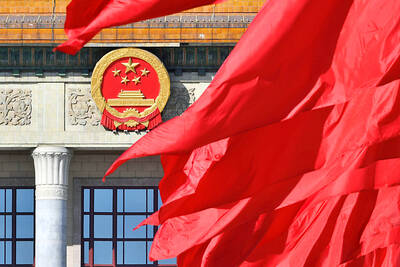Relieved investors stormed back into global markets yesterday, sending stock indexes in Hong Kong, South Korea and Japan surging by double digits, after the US Federal Reserve slashed interest rates to help revive the world’s largest economy and opened new credit lines with central banks.
Hong Kong’s Hang Seng Index led the charge in Asia, shooting up 12.8 percent to 14,329.85, and South Korea’s key stock index soared a record 12 percent to 1,084.72.
Japan’s Nikkei 225 stock average gained 10 percent to 9,029.76 as exporters like Toyota and Sony got a boost from the yen continuing to retreat from a 13-year high against the dollar last week.
Benchmarks in Australia, Singapore, Taiwan and the Philippines added 4 percent or more. Russia’s two main indexes were also up sharply.
The markets were primed for an explosive move after plunging in recent weeks.
“This is panic buying after panic selling,” said Linus Yip, a strategist at First Shanghai Securities in Hong Kong.
Wall Street futures said US markets were poised to open higher. Dow Jones industrial average futures were up more than 2 percent.
As trading opened in Europe, stocks in Britain, France and Germany were moderately higher.
The Federal Reserve’s overnight move to cut its key interest rate by half a percentage point was widely expected but still provided a reason to sustain the regional rise that began on Tuesday following days of punishing declines.
Hong Kong’s de facto central bank followed by cutting its key lending by the same amount as the Fed and Taiwan reduced its key interest rate by a quarter point. In Japan, speculation mounted that the central bank would cut its key rate, already at a low 0.5 percent, at a meeting today.
Before the Fed acted, China also lowered its rates by just over a quarter point. The Shanghai Composite index was up 2.9 percent.
Markets also took heart from an announcement that the Fed would temporarily supply new lines of credit worth up to US$30 billion to the central banks of South Korea, Brazil, Mexico and Singapore to help relieve the global credit crisis.
“You’re seeing some pretty aggressive action by the central banks. That’s giving people confidence and obviously these markets are very oversold,” said Tim Rocks, Asia strategist at Macquarie Securities in Hong Kong. “We’ve seen some genuine buying … for the first time investors willing to pick up some of the outrageous bargains out there.”
The US$30 billion facility is the latest in a series of swap arrangements where the Fed provides dollars for reserves of the other nations’ currencies.
The Fed said the new credit lines were designed “to help improve liquidity conditions in global financial markets” by increasing the global availability of US dollars. The move appeared to help loosen lending among the region’s banks.
Also See: Fed cuts key lending rate to 1 percent

US PUBLICATION: The results indicated a change in attitude after a 2023 survey showed 55 percent supported full-scale war to achieve unification, the report said More than half of Chinese were against the use of force to unify with Taiwan under any circumstances, a survey conducted by the Atlanta, Georgia-based Carter Center and Emory University found. The survey results, which were released on Wednesday in a report titled “Sovereignty, Security, & US-China Relations: Chinese Public Opinion,” showed that 55.1 percent of respondents agreed or somewhat agreed that “the Taiwan problem should not be resolved using force under any circumstances,” while 24.5 percent “strongly” or “somewhat” disagreed with the statement. The results indicated a change in attitude after a survey published in “Assessing Public Support for (Non)Peaceful Unification

The CIA has a message for Chinese government officials worried about their place in Chinese President Xi Jinping’s (習近平) government: Come work with us. The agency released two Mandarin-language videos on social media on Thursday inviting disgruntled officials to contact the CIA. The recruitment videos posted on YouTube and X racked up more than 5 million views combined in their first day. The outreach comes as CIA Director John Ratcliffe has vowed to boost the agency’s use of intelligence from human sources and its focus on China, which has recently targeted US officials with its own espionage operations. The videos are “aimed at

‘MISGUIDED EDICT’: Two US representatives warned that Somalia’s passport move could result in severe retaliatory consequences and urged it to reverse its decision Minister of Foreign Affairs Lin Chia-lung (林佳龍) has ordered that a special project be launched to counter China’s “legal warfare” distorting UN Resolution 2758, a foreign affairs official said yesterday. Somalia’s Civil Aviation Authority on Wednesday cited UN Resolution 2758 and Mogadishu’s compliance with the “one China” principle as it banned people from entering or transiting in the African nation using Taiwanese passports or other Taiwanese travel documents. The International Air Transport Association’s system shows that Taiwanese passport holders cannot enter Somalia or transit there. The Ministry of Foreign Affairs (MOFA) protested the move and warned Taiwanese against traveling to Somalia or Somaliland

SECURITY: Grassroots civil servants would only need to disclose their travel, while those who have access to classified information would be subject to stricter regulations The government is considering requiring legislators and elected officials to obtain prior approval before traveling to China to prevent Chinese infiltration, an official familiar with national security said yesterday. President William Lai (賴清德) in March announced 17 measures to counter China’s growing infiltration efforts, including requiring all civil servants to make trips to China more transparent so they can be held publicly accountable. The official said that the government is considering amending the Act Governing Relations Between the People of the Taiwan Area and Mainland Area (臺灣地區與大陸地區人民關係條例) to require all civil servants to follow strict regulations before traveling to China.